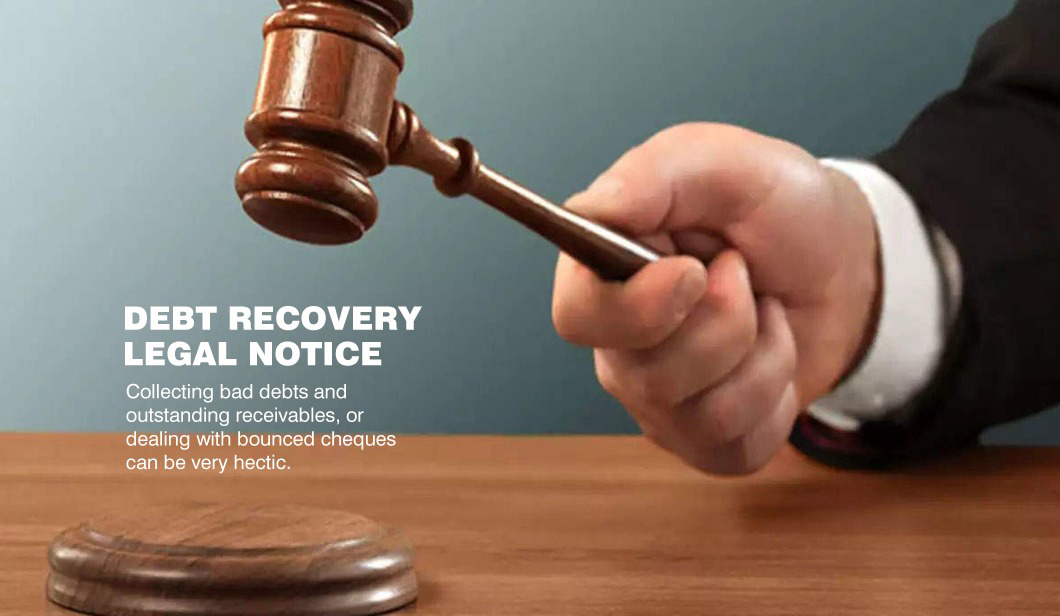Debt Recovery Legal Notice
Collecting bad debts and outstanding receivables, or dealing with bounced cheques can be very hectic. Tax Seva Kendra has a team of experienced debt collection attorneys and financial professionals who can help you recover your debt and can provide tailor-made solutions to recover what is rightfully yours.





